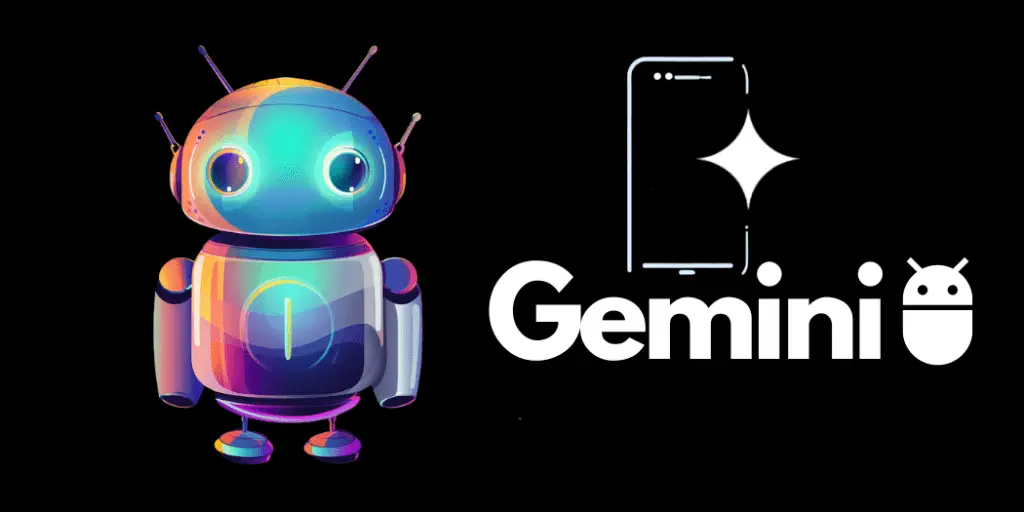Google has announced the expansion of its Gemini app to older Android smartphones, specifically those running Android 10 and 11.
This decision underscores a significant shift in Google’s strategy, aiming to democratize access to its latest AI technology across a broader range of devices, not just the newest models.
As AI continues to redefine user experiences and capabilities on mobile devices, this update marks an essential step in ensuring that more users, regardless of their device’s age, can benefit from the cutting-edge advancements in AI technology.
Google Ai to Old Android Devices Set against the backdrop of an increasingly competitive AI landscape where companies like Samsung are also updating their older devices with new AI features.
Google Ai to Old Android Devices
In an era where artificial intelligence is rapidly transforming the tech landscape, Google has taken a bold step to ensure that its innovations are accessible to a broader audience. The recent rollout of the Gemini app version v1.0.626720042 marks a significant development in this strategy.
Initially launched for devices operating on Android 12 and newer, Google has now extended Gemini’s compatibility to include older versions—Android 10 and Android 11.
This expansion is not merely a technical update but a strategic move to tap into a substantial segment of the global Android user base.
According to recent statistics, Android 10 and 11 together account for approximately 25.39% of all Android devices worldwide.
By making Gemini available on these older systems, Google is effectively opening up its latest AI technology to millions more users around the globe.
The Gemini app is designed to enhance the mobile experience through advanced AI capabilities, including, but not limited to, improved voice commands, contextual awareness, and personalized user interactions.

The functionality of Gemini on older devices has been confirmed through various tests conducted by industry experts from Android Police and 9To5Google, who report that the app performs just as well on older models as it does on the latest smartphones.
This section of the article will delve into the specifics of what the Gemini app offers, the technical requirements needed to support its features, and how this update aligns with Google’s broader mission to make AI more accessible and valuable across its entire ecosystem of services and devices.
By doing so, Google not only enhances user experience but also strengthens its competitive position in the global market, where AI integration is becoming a key differentiator among tech giants.
Device Compatibility
The decision by Google to expand the availability of its Gemini app to include older Android devices running versions 10 and 11 is a game-changer for millions of users worldwide.
This strategic move not only rejuvenates older smartphones but also brings advanced AI capabilities to a broader audience, potentially altering how users interact with their devices on a daily basis.
The Gemini app requires a minimum of 4GB of RAM to function effectively, which means a significant number of older devices can support this advanced AI software.
This requirement underscores the app’s reliance on substantial processing power to deliver its AI-driven features efficiently.
While initially rolled out for newer Android models, extending support to older versions dramatically increases the app’s reach. This includes a variety of older Pixel models and smartphones from other brands that still have large user bases.
Tests conducted by prominent tech reviewers such as Artem Russakovskii from Android Police and analysts from 9To5Google have confirmed that the app’s performance on older devices mirrors that on newer models.
This ensures that users of older Android smartphones do not have a compromised experience despite the aging hardware.
Users of older devices will now have access to the same cutting-edge AI features that were previously exclusive to newer models.
This includes enhanced voice interactions, contextual understanding of user requests, and potentially more personalized app recommendations and optimizations.
By making Gemini available on older devices, Google has democratized access to AI technology, allowing users with older models to enjoy new functionalities without the need to invest in new hardware.
This move also helps retain users within the Android ecosystem by boosting satisfaction with older devices, making users less likely to switch to newer models or different platforms due to outdated technology.
Extending the lifespan of older devices through software updates like Gemini is a sustainable approach that reduces electronic waste and encourages users to keep their devices longer.
This strategy opens up new markets for Google, particularly in regions where consumers are more likely to own older models or where the upgrade cycle to new smartphones is slower.
Broader AI Strategy
As Google extends its AI capabilities to older Android devices, it is essential to consider this move within the broader context of global AI strategy and the actions of its competitors, notably Samsung.
This strategic expansion reflects not only a response to consumer demand but also a broader industry trend toward more inclusive technology.
By making the Gemini app available on older Android versions, Google demonstrates its commitment to inclusivity, ensuring that AI benefits are not just limited to those who can afford the latest technology.
Google’s approach also promotes the longevity of devices through continuous software updates, which can extend the functional life of older models, supporting sustainability.
Samsung has similarly updated its Galaxy S23 range with new AI features like Live Translate and Note Assist. It later extended these updates to the Galaxy S22 series. This move parallels Google’s strategy, emphasizing the industry-wide push to enhance older devices with new technology.

Both companies are responding to a market where consumers are holding onto their devices for more extended periods. By upgrading older models, they are not only improving user satisfaction but also responding to economic and environmental concerns.
These actions by leading tech giants are setting new standards in the industry for software updates and AI integration, pushing even smaller players to consider similar strategies.
As more companies update older devices with advanced AI features, consumer expectations are shifting, demanding more from their existing devices and valuing software support just as highly as hardware innovation.
Looking forward, AI capabilities like those seen in the Gemini app are likely to become standard features across all devices, regardless of their release date.
Companies may further integrate AI not only in smartphones but across an array of devices and services, enhancing user experience through seamless interaction between devices.
Official Announcements
As Google prepares for its upcoming I/O 2024 conference, the tech community is abuzz with anticipation regarding further announcements about the Gemini app and other AI-driven initiatives.
This excitement reflects a larger context of what’s expected to be a pivotal moment for Google in defining the future trajectory of its AI strategy.
While the rollout has already been spotted and discussed, an official announcement is expected, which will likely include detailed insights into the capabilities and future updates planned for Gemini.
Speculation suggests that Google will announce how Gemini will integrate with other vital services, such as Google Maps, and even broader aspects of the Android ecosystem, like smart home technologies.
Given the role of AI in the upcoming Android 15 operating system, we can expect comprehensive details on how Gemini’s AI features will enhance the new OS, potentially setting new benchmarks for mobile technology.
With a focus on building ‘next-gen AI apps,’ Google is likely to showcase new applications that harness the power of Gemini to deliver more personalized and efficient user experiences.
There is also anticipation around announcements of enhanced AI functionalities that could include more advanced natural language processing, better contextual understanding, and predictive analytics within apps.
By continuously updating older devices and integrating AI more deeply into daily device usage, Google aims to enhance user retention and engagement, an essential metric in a competitive market.
Announcements also cover the extension of AI features to other devices in the Google ecosystem, such as Chromebooks and Google Home devices, ensuring a unified and interconnected user experience.
By enhancing the functionality of older devices, Google not only extends the lifespan of these products but also strengthens user lock-in to its ecosystem as users get more from their existing devices.
As AI becomes a central focus of Google’s strategy, the company is positioned to drive innovation and set industry standards, influencing how other companies develop and deploy AI technologies.
Long-Term Implications
Google’s decision to expand AI features to older Android devices via the Gemini app signals a pivotal shift in the tech industry’s approach to software lifecycle management and user engagement.
This move has broad implications not just for device longevity and consumer satisfaction but also for the environmental impact of the tech industry and the competitive landscape of mobile technology.
By extending the functionality and relevance of older devices through software updates like Gemini, Google is contributing to a reduction in electronic waste. Users are likely to keep their devices longer if they continue to receive new features and improvements.
This approach also encourages consumers to consider the environmental impact of frequently upgrading devices, promoting a shift towards more sustainable technology consumption patterns.
As older devices remain valuable and relevant longer, the traditional mobile device upgrade cycle could extend. This change would affect not only consumer behavior but also the sales strategies of device manufacturers.
The commitment to updating older devices ensures that all users, regardless of the age of their technology, can enjoy a modern and efficient user experience. This inclusivity could enhance overall customer satisfaction and brand loyalty.
By focusing on AI as a critical feature for both new and old devices, Google is positioning itself at the forefront of AI innovation in mobile technology. This could spur further advancements in AI as competitors strive to match or exceed Google’s offerings.

Google’s push to integrate AI across its device spectrum could set new industry standards for software updates and AI integration, compelling other tech companies to follow suit and innovate within their ecosystems.
The emphasis on AI and its integration into older systems might lead to new standards in software development, prioritizing backward compatibility and extended software support.
Expanding AI features to older devices could have a powerful impact in emerging markets, where consumers may have less frequent access to the latest hardware. This could expand Google’s market share and influence in these regions.
Final Thoughts
Google’s recent expansion of the Gemini app to older Android devices is more than just a technological upgrade—it represents a significant shift in how the tech industry addresses software lifecycle management, sustainability, and consumer accessibility.
By making cutting-edge AI functionalities available to a broader range of devices, Google is not only enhancing the user experience across its ecosystem but also setting new benchmarks for the industry.
This move has important implications for device longevity, reducing the frequency with which devices need to be replaced and thereby lessening the environmental impact associated with electronic waste.
It also democratizes access to advanced technology, ensuring that the benefits of AI are not reserved only for those who can afford the latest hardware.
This is especially critical at a time when technological inclusivity is becoming increasingly important.
Google’s strategy could redefine consumer expectations, pushing other companies to provide more extended support for their devices and to consider the broader implications of their technology on society and the environment.
As we look forward to the upcoming developments announced at Google I/O and beyond, it’s clear that Google is not only responding to current trends but also shaping the future of the tech industry.
Extension of AI features to older Android devices is a commendable step toward a more inclusive and sustainable tech ecosystem.
It underscores a commitment to user satisfaction and environmental responsibility, heralding a new era where technology evolves not just in leaps but also in mindful expansions, ensuring that no user is left behind.


